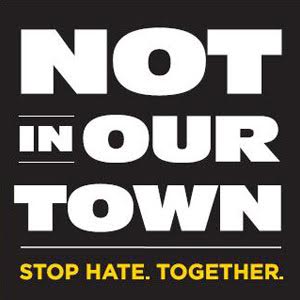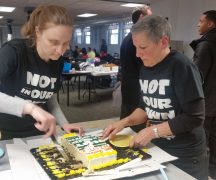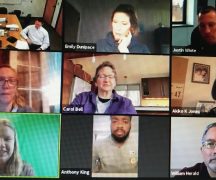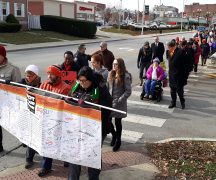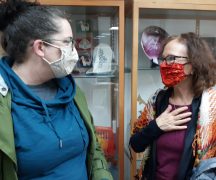From NOT IN OUR TOWN BOWLING GREEN
In this contentious election, we are bombarded by messages. These sound bites and slogans do little to help us understand ourselves or one another in meaningful ways. Sometimes, however, a five-word message can spark a meaningful exchange of ideas.
Recently, a member of the BGSU community raised concerns about a yard sign stating, “White Silence is White Consent”, indicating that the message seemed exclusionary. The concern was forwarded to Not In Our Town (NIOT). As a joint venture between the university and the community, NIOT strives to inspire people to work together to stop hate and build safe, inclusive environments for all. Though this sign, and possibly other similar messages, might feel exclusionary for some, NIOT understands the intent of this sign quite differently.
White people in the United States may face difficult hardships for many reasons, but race is rarely one. Indeed, there are many benefits to being White. White people have historically held positions of influence and been dominant voices in our society. And White people’s silence can be equally powerful – particularly in the face of injustice. History offers far too many examples of times when dominant groups stood silently by while others were persecuted.
Though White people have the privilege of remaining silent in the face of racism, standing by and remaining silent implies acceptance of, and consent to, the injustice and mistreatment of others. White silence ignores the pain, fear, and discrimination that People of Color are forced to confront each and every day. As Elie Wiesel said, “Silence encourages the tormentor, never the tormented.” People of Color make themselves vulnerable every time they raise their voices to fight for their futures, and even their lives. Therefore, if our country and our community is to become the safe and inclusive environment for all people, it is crucial that White allies speak out against racism and every other -ism that has plagued our country for centuries.
Words and voices matter in the struggle for justice, but these are not enough. We also need actions, large and small, to bring about change. We need allies who put signs in yards and others who take the time to question what this means. We need to think beyond the words (and silences) that divide us to focus on the principles and values that can bring us together.

